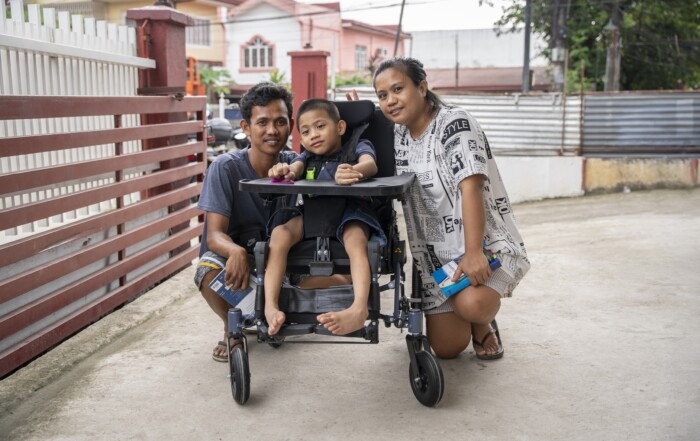Supporting Families Living With Disability

How can the church offer practical support to families whose season does not have an end in sight?
When people are in a season of illness, or stress, or grief, the church is marvelous at offering a rapid response. But how can we offer practical support to families whose season does not have an end in sight? For families affected by disability, their “season” of need can be years or decades long. When a church’s support structure is built for a sprint, how do we retrain for a marathon?
We start by building a team.
Supporting families with chronic needs as a small team can feel overwhelming. If the goal of a support-network is to help shift some of the burden off the family and onto a team, we need to begin with communication. Coordinating care can be a burden in itself. Assigning someone the family trusts to serve as a point of communication for the family helps prevent the family from having to juggle logistics with multiple people. This also helps members of your church know who to approach if they’d like to help.
There is potential awkwardness in having to ask, decline, or coordinate help themselves. Simplifying, as much as possible, the family’s communication channels is beneficial to everyone involved.
A point person is also significant because a family’s needs change and adapt with time. It’s also common for caregivers of or individuals with disabilities to go through cycles of grief. While everyone deals with each stage in a unique way, and no two people respond the same, understanding that your friend might be in the midst of one of these stages will help you have empathy and patience.
Denial: During an initial diagnosis phase, many parents (especially fathers) experience difficulty accepting reality. This can create all kinds of new relational dynamics, especially if one parent or caregiver is at a different stage of grief than their partner.
Anger: After accepting disability will be part of their life, anger is a natural response. Anger at God, anger at a spouse, anger at the drunk driver who put them in a wheelchair… In periods of anger, it is especially hard to ask for or receive help.
Bargaining: Trying to find a “cure,” seeking alternative medicine, or pleading with God in prayer are again a natural part of the grieving process.
Depression: A period of hopelessness can follow these periods. Resigning yourself to a perceived “worst possible scenario” may seem like a form of comfort. This is the stage where isolation is easy to fall into, and dangerous to stay in. Be diligent in pursuing your friend while in this phase.
Acceptance: Your friend has come to understand at some level what a new normal will look like.
“A diligent and attentive team is so crucial to successful long-term support.”
Remember that this cycle may restart in the future. Just as someone who experiences the loss of a loved one may grieve anew during holidays or on anniversaries, your friend may grieve multiple times and in multiple ways. Each time the cycle restarts there is a danger of them falling back into isolation. That’s why a diligent and attentive team is so crucial to successful long-term support.
Outside of moments of crisis, challenge yourself to think about what your friends loves, what day-to-day tasks might be hard for them to do right now, or what caregivers and siblings might simply enjoy doing. “Let me know if you need anything” is as good as not offering any help at all. By putting the burden on them to ask you are unintentionally asking them to do a few things:
- You are asking them to think of what they need, and anticipate that need far enough in advance to ask you to help with it, and…
- You are asking them to ask. This may unintentionally make them feel like a burden, discouraging them from ever asking.
Instead, be specific in what you offer. The best way to actually offer practical care is to offer to do specific tasks. If you don’t know what to offer, ask your friend to describe their typical week. There are likely tasks you can help with that they would never think to ask for!
When we thoughtfully work together to meet one another’s needs, we express God’s love in a unique way.
A cord of three strands is not easily broken.
No one can do life alone; and no one is meant to. But without clear structure and planning, many people who are willing and able to help will stay on the sidelines, just because we don’t know how to help.
Establish a network of support and the burden of helping does not fall on a single person.

Do You Have Questions?
Contact us at [email protected] or call (818) 707-5664. We’re here for you. Your ministry’s success is our highest priority!





